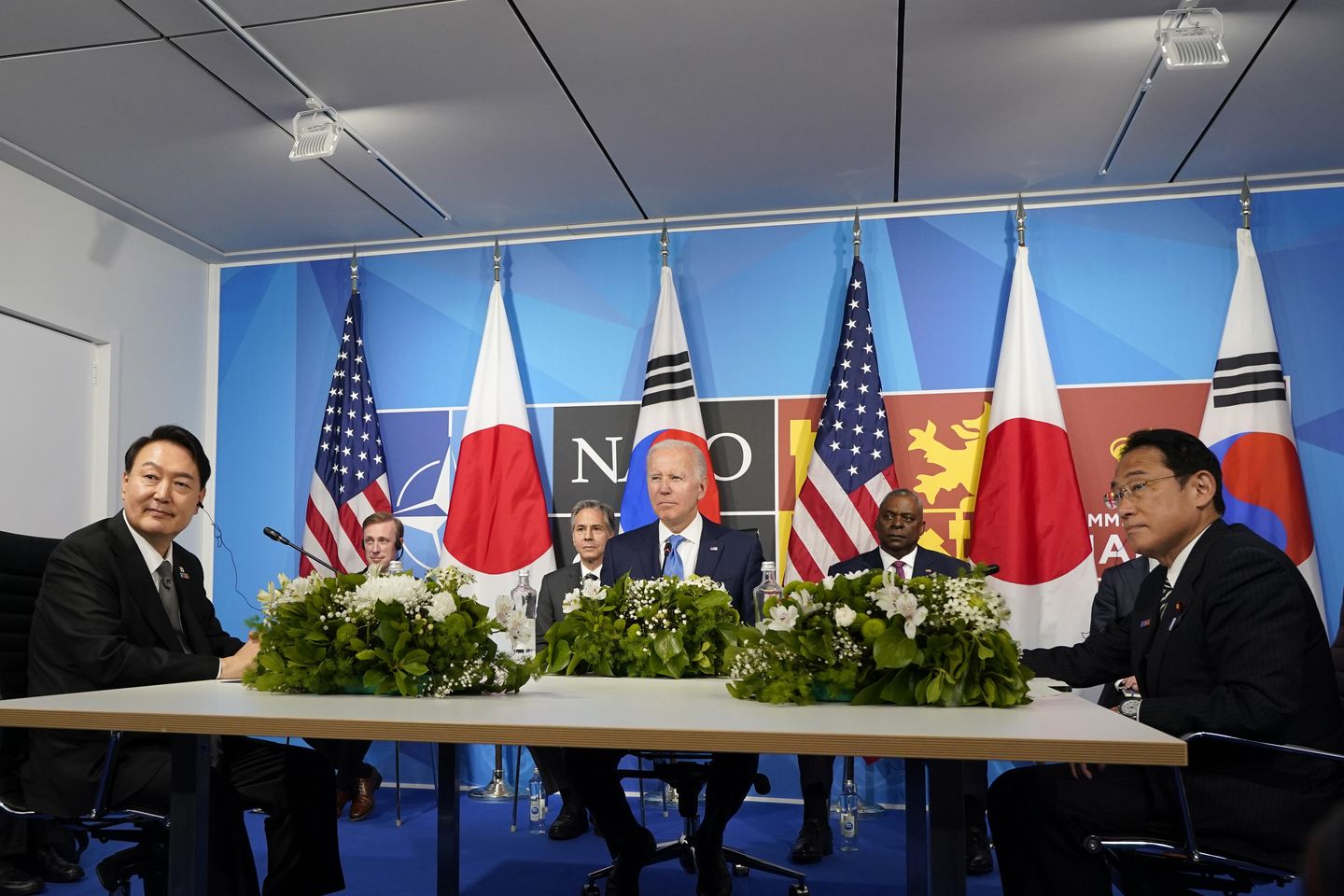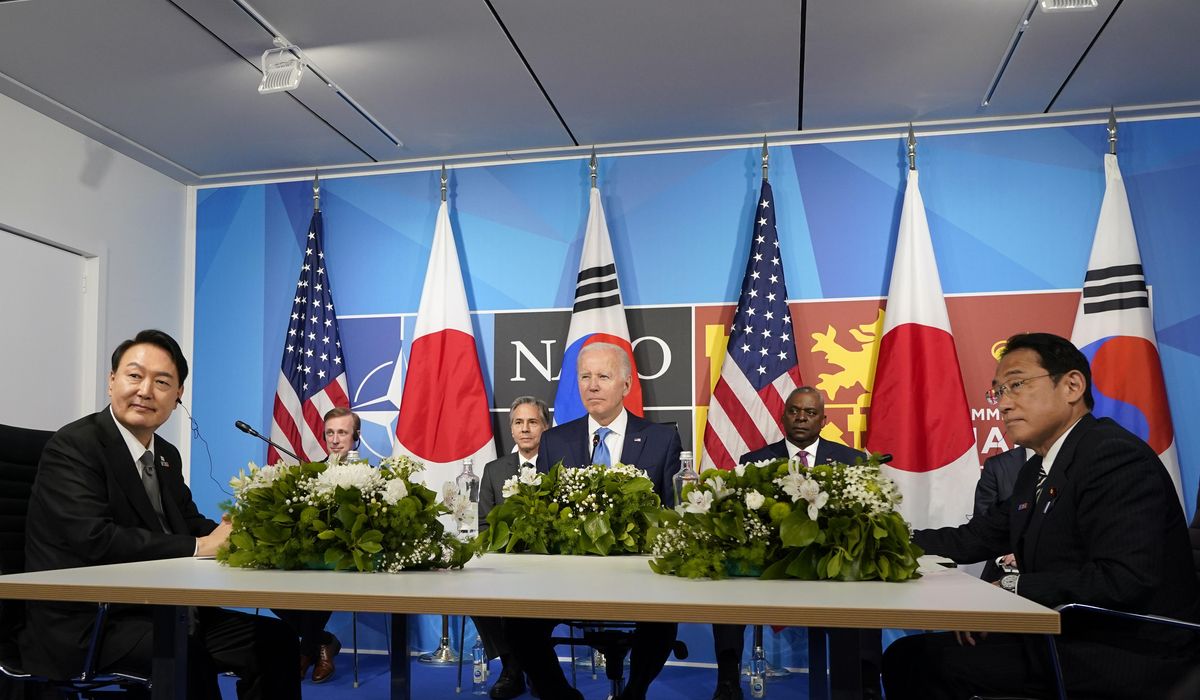

Diplomatic friction between South Korea and Japan that threatens to undermine a strategic partnership with the U.S. appears to be easing after years of intense bickering between the two key American allies in Northeast Asia.
Japanese Prime Minister Fumio Kishida and South Korean President Yoon Suk Yeol have both expressed hope to resolve their nations’ historical tensions in meetings on the sidelines of the NATO summit in Madrid, where the two met with President Biden on Wednesday.
The three-way leaders meeting was the first of its kind since September 2017, coming amid rising concern in Washington, Tokyo and Seoul that North Korea is on the verge of carrying out a nuclear weapon test that could test the strength of America’s regional security alliances.
A White House readout called the Biden-Yoon-Kishida face-to-face discussions a “historic trilateral meeting in which the three leaders discussed enhancing trilateral cooperation throughout the Indo-Pacific, particularly in regard to addressing the evolving threat posed by [North Korea’s] unlawful weapons of mass destruction and ballistic missile programs.”
“President Biden underscored the United States’ unshakable commitment to the defense of both Japan and the Republic of Korea,” the administration said.
While the statement did not mention a potential North Korean nuclear test, U.S. intelligence officials have recently said they have detected preparations by Pyongyang at a major test site for what would be the country’s seventh overall nuclear test and first since 2017.
SEE ALSO: U.S. bolsters long-term troop presence in Europe as Russia-Ukraine war drags on
U.S. efforts to counter the North Korean threat have been challenged during recent years by long-simmering tensions between South Korea and Japan over bilateral issues. Things got so bad that Seoul threatened in 2019 to cancel a key intelligence-sharing pact with Japan over lingering issues dating in part back to Japan‘s colonial occupation of the Korean peninsula in the early 20th century.
South Koreans still bristle at Japan’s treatment of the country, first as a colony in the early 20th century and then during World War II.
Japanese officials have argued Tokyo long ago made reparations for its actions and have accused Seoul of trying to revive historical grievances for domestic political gain.
Friction between the two soared in 2018 when Tokyo accused a South Korean navy destroyer of targeting a Japanese aircraft with fire-control radar. Tokyo subsequently announced trade sanctions targeting exports vital to South Korea’s technology sector — a move that triggered outbursts of anti-Japan sentiment in South Korea. While the two have upheld the three-way alliance with the U.S., the tensions have continued through recent years.
However, the arrival of new leaders in both Japan and South Korea over the past year has sparked hopes for a detente, with both Mr. Yoon and Mr. Kishida having signaled desires to strengthen the three-way alliance with Washington.
Mr. Yoon and Mr. Kishida held a brief one-on-one encounter Tuesday night at a dinner hosted on the sidelines of the NATO summit by Spanish King Felipe VI. South Korean officials told the Voice of America that Mr. Yoon told Mr. Kishida he plans to “resolve pending issues between Korea and Japan as soon as possible” so that the two countries can “move forward in a future-oriented manner.”
Japan‘s Kyodo News cited the Japanese Foreign Ministry as saying Mr. Kishida told Mr. Yoon during the dinner that he hopes the South Korean president will work to restore the countries’ “extremely severe” relations to “a healthy state.”
